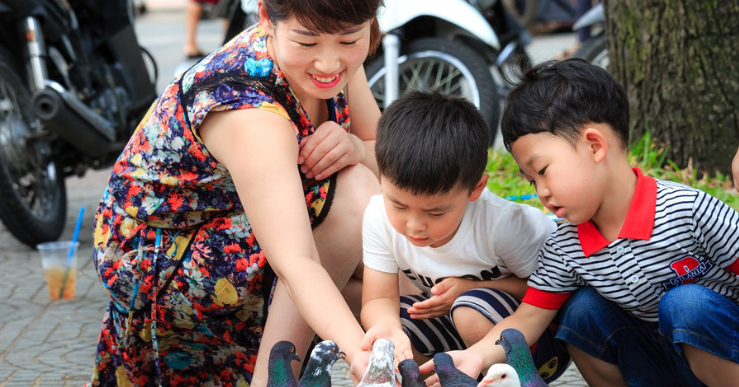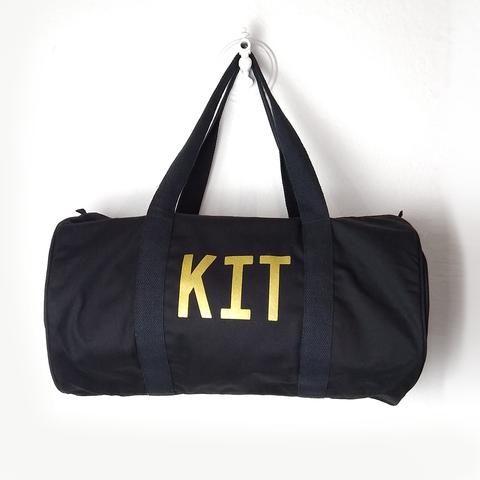The Importance Of Playing With Your Child
1
You’d think that play would come naturally to parents. You’d think it was an instinctive urge and would be so easy to do, and you’d think that parents would take any opportunity to play with their child, but that’s not always how it works. Some parents don’t find it easy playing with their children, and some parents say they don’t enjoy it. These are all normal responses but there are many ways of incorporating play into everyday life at home that will be of enormous benefit to the child – and the parent too.
Children need to
SelfishMother.com
2
play. It’s how they learn and develop. Play provides the building blocks that helps set them up for the rest of their lives. It can stimulate a lifelong love of learning and in the formative early years, children gather information about the world around them and learn physical, cognitive and social skills. And even though play is crucial, it doesn’t have to be a burden on a parent. Games don’t have to take forever or require intricate planning and set-up. Sometimes, even 10 minutes is enough and you don’t always need props or toys
SelfishMother.com
3
to have fun.
So, don’t wait for your child to ask you to play (but if he or she does, accept with grace and enthusiasm) – take the initiative yourself sometimes. Start a game of peekaboo, hide and seek or tag. Be the first to wrestle. Grab a ball. Set up an area outside for water and mudplay. Put a blanket outside with some toys.
Games that involve physical activity are crucially important for a child’s development, they’re good stress-busters too – for children and parents. So if your child is a bit niggly or restless or if
SelfishMother.com
4
you’ve had a hard day, get physical with them.
Remember, your child craves time with you. Being with a parent makes them feel special and whether you play with your child on a one-to-one basis or enjoy a group activity with other adults and children, that time is invaluable. Let’s look at some of the ways you can play with your child.
Outdoor play
Outdoor play and nature play have a hugely positive influence on behaviour, physical and cognitive development, social skills and academic performance – and they boost self-confidence. So find a
SelfishMother.com
5
ball and get kicking, throwing and catching with your child. Toss beanbags. They’ll love traditional favourites like hopscotch, four square and jump rope – even ‘just’ going for a walk around the neighbourhood can be fun.
Play games with racquets or bats. Push your child on a swing or have fun with them on the outdoor playground. Play hide and seek or catchers. Ride bikes. Play with hula hoops. Bunker down in the sandbox or find some water and mud and get squelchy! Let your child help you with outdoor tasks, like cleaning the
SelfishMother.com
6
patio or gardening or play games like ‘who can fill a bucket with leaves first’ which have a benefit to you too!
Household games
Chores don’t have to be a bore when there are children around – domestic duties can become playtime when you get your children to lend a helping hand. A sink full of water and plastic cups can be ‘washing up’ but it can be a meaningful learning experience too. Tidying toys can become a counting game and folding laundry can become play time. Play safe games when you are cooking – like dropping bits of cut
SelfishMother.com
7
vegetables into water and counting them. The possibilities are endless.
Play silly games. Board games. Card games. Activity games. And remember, it’s not a competition that you have to win! Put on some music and dance or sing songs. Read books together. Play ‘I Spy’ or ‘Follow the Leader’. Make cookies or cupcakes together. String noodles together to make necklaces. Poke toothpicks into Jellytots to construct shapes. Make face masks on paper plates. Paint or draw together.
You can also approach an early learning
SelfishMother.com
8
or childcare centre for ideas about how to play with your child. For example, have a look if there’s a Nido Early School near you as their educators would be more than happy to share their ideas and experiences with you.
SelfishMother.com
This blog was originally posted on SelfishMother.com - why not sign up & share what's on your mind, too?
Why not write for Selfish Mother, too? You can for free and post immediately.
We regularly share posts on @SelfishMother Instagram and Facebook :)
nidoearlyschool - 15 Apr 19
You’d think that play would come naturally to parents. You’d think it was an instinctive urge and would be so easy to do, and you’d think that parents would take any opportunity to play with their child, but that’s not always how it works. Some parents don’t find it easy playing with their children, and some parents say they don’t enjoy it. These are all normal responses but there are many ways of incorporating play into everyday life at home that will be of enormous benefit to the child – and the parent too.
Children need to play. It’s how they learn and develop. Play provides the building blocks that helps set them up for the rest of their lives. It can stimulate a lifelong love of learning and in the formative early years, children gather information about the world around them and learn physical, cognitive and social skills. And even though play is crucial, it doesn’t have to be a burden on a parent. Games don’t have to take forever or require intricate planning and set-up. Sometimes, even 10 minutes is enough and you don’t always need props or toys to have fun.
So, don’t wait for your child to ask you to play (but if he or she does, accept with grace and enthusiasm) – take the initiative yourself sometimes. Start a game of peekaboo, hide and seek or tag. Be the first to wrestle. Grab a ball. Set up an area outside for water and mudplay. Put a blanket outside with some toys.
Games that involve physical activity are crucially important for a child’s development, they’re good stress-busters too – for children and parents. So if your child is a bit niggly or restless or if you’ve had a hard day, get physical with them.
Remember, your child craves time with you. Being with a parent makes them feel special and whether you play with your child on a one-to-one basis or enjoy a group activity with other adults and children, that time is invaluable. Let’s look at some of the ways you can play with your child.
Outdoor play
Outdoor play and nature play have a hugely positive influence on behaviour, physical and cognitive development, social skills and academic performance – and they boost self-confidence. So find a ball and get kicking, throwing and catching with your child. Toss beanbags. They’ll love traditional favourites like hopscotch, four square and jump rope – even ‘just’ going for a walk around the neighbourhood can be fun.
Play games with racquets or bats. Push your child on a swing or have fun with them on the outdoor playground. Play hide and seek or catchers. Ride bikes. Play with hula hoops. Bunker down in the sandbox or find some water and mud and get squelchy! Let your child help you with outdoor tasks, like cleaning the patio or gardening or play games like ‘who can fill a bucket with leaves first’ which have a benefit to you too!
Household games
Chores don’t have to be a bore when there are children around – domestic duties can become playtime when you get your children to lend a helping hand. A sink full of water and plastic cups can be ‘washing up’ but it can be a meaningful learning experience too. Tidying toys can become a counting game and folding laundry can become play time. Play safe games when you are cooking – like dropping bits of cut vegetables into water and counting them. The possibilities are endless.
Play silly games. Board games. Card games. Activity games. And remember, it’s not a competition that you have to win! Put on some music and dance or sing songs. Read books together. Play ‘I Spy’ or ‘Follow the Leader’. Make cookies or cupcakes together. String noodles together to make necklaces. Poke toothpicks into Jellytots to construct shapes. Make face masks on paper plates. Paint or draw together.
You can also approach an early learning or childcare centre for ideas about how to play with your child. For example, have a look if there’s a Nido Early School near you as their educators would be more than happy to share their ideas and experiences with you.
Did you enjoy this post? If so please support the writer: like, share and comment!
Why not , too? You can share posts & events immediately. It's free!
Jessie (Bertoni) Counted is a highly skilled industry professional and has covered most educational and management roles across the sector in over the last 16 years. Jessie has excellent knowledge and skills and currently is the People & Quality Leader for NSW services covering Long Day Care and Outside School Hours Care. Jessie is passionate about transforming the way we see education and is committed to supporting services in providing quality education and care.
LIST




















